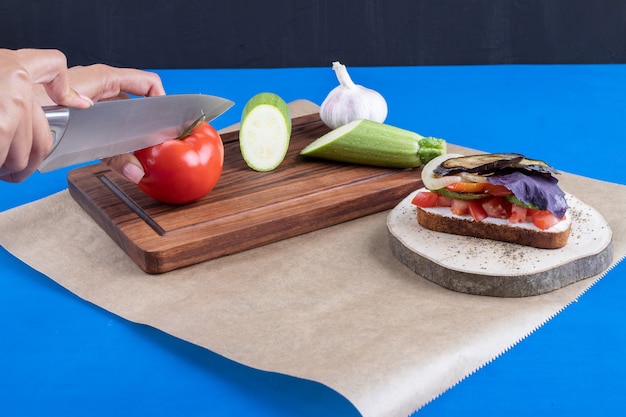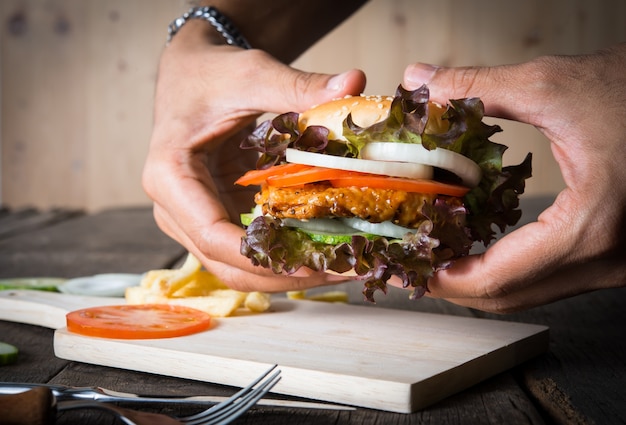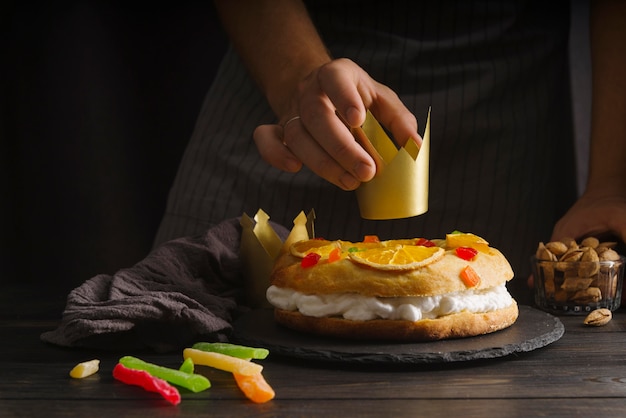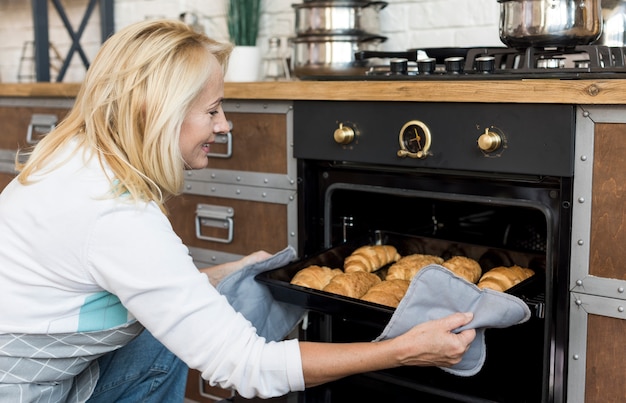(Part 1) The Art of the Perfect Burger: A Guide to Timing

What Influences Cooking Time?
Now, the key factor that dictates cooking time is the thickness of your patty. A thin patty will cook much quicker than a thick one. It's a simple concept, but it makes a huge difference. Other factors include: Meat Type: Beef, turkey, chicken – they all cook at different rates. Beef, in general, tends to cook faster than turkey or chicken. Fat Content: Leaner meat cooks quicker because there's less fat to render. Fattier meat will need a bit more time. Cooking Method: Grilling, frying, and baking all have different heat levels and contact points, which affect the cooking time. Desired Temperature: The higher the internal temperature you want (for your desired level of doneness), the longer you'll need to cook.(Part 2) Mastering the Grill: A Burger's Best Friend

Timing for grilled burgers
Here's a general guide to grilling times for burgers of varying thicknesses.| Thickness (inches) | Rare | Medium-Rare | Medium | Medium-Well | Well-Done |
|---|---|---|---|---|---|
| 1/2 | 2-3 minutes per side | 3-4 minutes per side | 4-5 minutes per side | 5-6 minutes per side | 6-7 minutes per side |
| 3/4 | 3-4 minutes per side | 4-5 minutes per side | 5-6 minutes per side | 6-7 minutes per side | 7-8 minutes per side |
| 1 | 4-5 minutes per side | 5-6 minutes per side | 6-7 minutes per side | 7-8 minutes per side | 8-9 minutes per side |
- Rare: 125°F (52°C)
- Medium-Rare: 130°F (54°C)
- Medium: 140°F (60°C)
- Medium-Well: 150°F (65°C)
- Well-Done: 160°F (71°C)
Pro Tips for Grilling Like a Champion
Here are a few tips to help you become a grill master:- Preheat Your Grill: A hot grill is crucial. Aim for medium-high heat for a good sear.
- Don't Overcrowd: Give your burgers some breathing room. Crowding can lead to uneven cooking and steaming instead of grilling.
- Flip Only Once: Resist the urge to flip those burgers multiple times. A single flip is all you need for that perfect sear.
- The Meat Thermometer is Your Friend: It's the most accurate way to ensure your burgers are cooked to your liking.
- Let Them Rest: Allow your burgers to rest for 5-10 minutes after cooking. This lets the juices redistribute, making for a juicier, more tender burger.
(Part 3) The Pan-Fried Burger: Quick and Easy

Timing for Pan-Fried Burgers
Here's a general guide to pan-frying times:- Thin patties (1/2 inch): 3-4 minutes per side
- Medium patties (3/4 inch): 4-5 minutes per side
- Thick patties (1 inch): 5-6 minutes per side
Pan-Frying Tips
Here are a few tips to make your pan-fried burgers a success:- Cast Iron is King: It holds heat beautifully and creates that irresistible sear.
- Preheat That Pan: A hot pan is key to a crispy crust.
- Don't Overcrowd: Give your burgers space to cook evenly.
- One Flip Only: Flip those patties just once for the best results.
- Butter or Oil? Yes Please!: This prevents sticking and adds another layer of flavour.
- Meat Thermometer Alert: The best way to check doneness.
- Rest Time: Allow those patties to rest for 5-10 minutes after cooking.
(Part 4) Baking Burgers: The Low-Maintenance Option
Baking burgers? Yes, it's a thing! It's a great option for when you want a more hands-off approach, especially when you're cooking a large batch for a crowd. You won't get those char marks or the super crispy crust of grilling or frying, but you can still achieve a perfectly cooked burger with a little know-how.Baking Time for Your Burgers
Here's a guide to baking times:- Thin patties (1/2 inch): 10-12 minutes
- Medium patties (3/4 inch): 12-15 minutes
- Thick patties (1 inch): 15-20 minutes
Tips for Baking delicious burgers
Here are a few tips to make baking burgers a breeze:- Preheat Your Oven: A hot oven is essential for a good crust.
- Line Your Baking Sheet: This prevents sticking and makes cleanup easier.
- Space Those Patties: Don't overcrowd the baking sheet.
- Flip Them Halfway: This ensures even cooking on both sides.
- Meat Thermometer Time: It's the most accurate way to check doneness.
- Rest Time is Essential: Allow those burgers to rest for 5-10 minutes after cooking.
(Part 5) Common Mistakes and How to Avoid Them
We've all been there. Undercooked patties, dry, overcooked disasters – burger blunders happen! But don't worry, with a little knowledge, you can avoid these common pitfalls.- Overworking the Meat: Overworking the meat makes your burgers tough and dense. Just gently combine the ingredients until they're evenly distributed.
- Forgetting the Meat Thermometer: A meat thermometer is essential for accurate doneness. Don't rely solely on visual cues.
- Flipping Too Often: Constantly flipping those burgers can lead to dryness. One flip, and let them cook undisturbed.
- Crowding the Grill or Pan: Overcrowding leads to steaming instead of grilling or frying. Give your burgers room to breathe.
- Cooking Over High Heat: High heat can burn the outside before the inside is cooked through. Use medium-high heat for grilling and pan-frying.
- Skipping the Rest Time: Resting your burgers allows the juices to redistribute, resulting in a juicier burger.
(Part 6) Beyond the Basics: Elevating Your Burger Game
You've got the timing down, you're avoiding the common mistakes, but how can you take your burgers from good to amazing? Let's explore some ways to add a touch of culinary magic.The Art of burger seasoning
Simple salt and pepper are classics, but don't be afraid to get creative with your seasonings. Here are a few ideas to get you started:- Garlic Powder: Adds a savory depth of flavour.
- Onion Powder: Enhances the meaty flavour.
- Paprika: Adds a touch of sweetness and smokiness.
- Chili Powder: Adds a kick of heat.
- Dried Herbs: Rosemary, thyme, oregano, and basil all pair beautifully with beef.
burger toppings: A World of Flavor
This is where your creativity really shines. From classic combinations to innovative twists, the possibilities are endless. Here are a few ideas to get those tastebuds tingling:- Cheese: Cheddar, Swiss, Monterey Jack, American, Blue Cheese – the choice is yours.
- Vegetables: Lettuce, tomato, onion, pickles, avocado, jalapenos, mushrooms, and more.
- Sauces: Ketchup, mustard, mayonnaise, bbq sauce, sriracha, and more.
- Other Extras: Bacon, caramelized onions, grilled pineapple, fried egg, and more.
(Part 7) FAQ
1. How long do I cook a burger if I want it rare?
Rare burgers should be cooked to an internal temperature of 125°F (52°C). The time will vary depending on the thickness of the patty and the cooking method. Use a meat thermometer to ensure it reaches the desired temperature.
2. What if my burger is too thin?
If your burger is too thin, it's likely to cook too quickly and become dry. You can try adding a little bit of extra fat to the meat before forming the patties. Alternatively, you can add a layer of cheese to the top of the patty, which will help to keep it moist.
3. How do I know if my burger is done?
The best way to determine doneness is by using a meat thermometer. Insert it into the thickest part of the patty, aiming for the desired internal temperature. You can also check the visual cues, but remember, these are not always reliable. Rare burgers will have a cool red centre, while well-done burgers will be completely brown throughout.
4. Can I cook burgers in the microwave?
While it's possible to cook burgers in the microwave, it's not recommended. The resulting burgers will be dry and lack the flavour and texture of grilled or pan-fried burgers.
5. How do I keep my burgers juicy?
To keep your burgers juicy, avoid overworking the meat when forming the patties. Use a meat thermometer to ensure they're cooked to your desired doneness, and avoid flipping them too often. Allow the burgers to rest for 5-10 minutes after cooking before serving.
(Part 8) A Final Word
So there you have it! A comprehensive guide to burger cooking time, covering everything from the basics to some handy tips and tricks. Remember, practice makes perfect. Don't be afraid to experiment and find your own perfect burger recipe. And most importantly, enjoy the process! It's all about the love of a good burger. Happy grilling, pan-frying, or baking!Everyone is watching

Prime Rib Roast Cooking Time Chart: Per Pound Guide
Cooking TipsPrime rib roast. Just the name conjures images of lavish dinners, crackling fires, and hearty laughter. It’s ...

How Long to Bake Potatoes in the Oven (Perfect Every Time)
Cooking TipsBaked potatoes are a staple in my kitchen. They're incredibly versatile, delicious, and surprisingly easy to m...

Perfect Rice Every Time: The Ultimate Guide to Cooking Rice
Cooking TipsAs a self-proclaimed foodie, I've always been a bit obsessed with rice. It's the foundation of countless cuisi...

The Ultimate Guide to Cooking Asparagus: Tips, Techniques, and Recipes
Cooking TipsAsparagus. The mere mention of this spring delicacy conjures up images of vibrant green spears, crisp and burs...

Ultimate Guide to Cooking the Perfect Thanksgiving Turkey
Cooking TipsThanksgiving. Just the word conjures up images of overflowing tables laden with delicious food, the scent of r...
